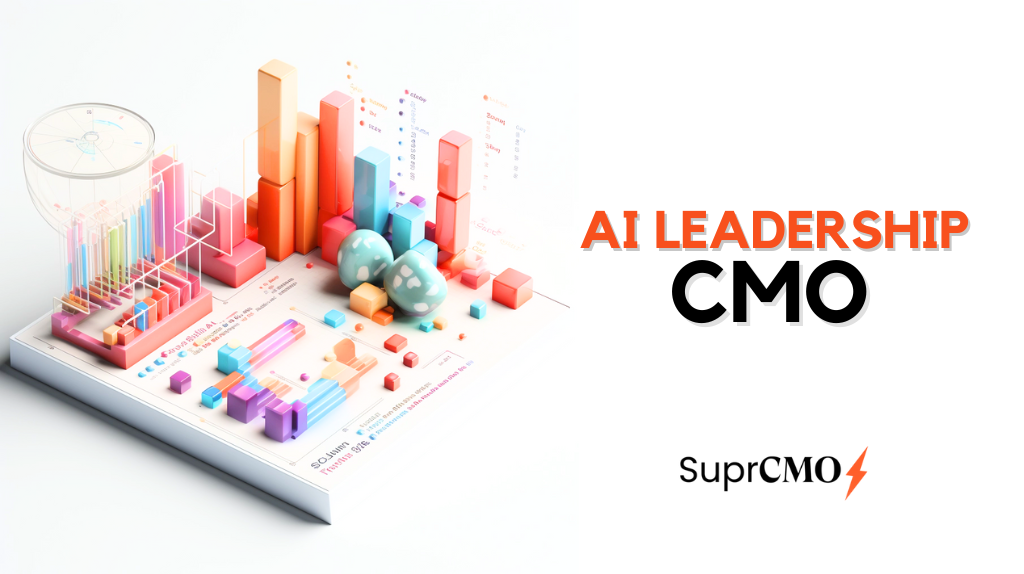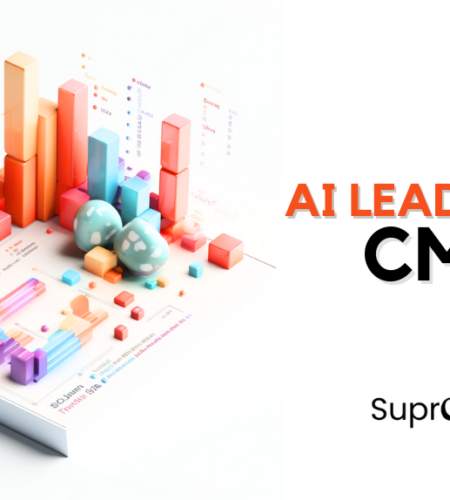
The marketing industry is undergoing a transformation as businesses increasingly turn to AI-driven solutions to stay ahead of the competition. One of the most significant developments in this area is the rise of virtual CMOs, or Chief Marketing Officers, which use AI technology to help businesses with their marketing strategies.
As businesses seek to leverage data-driven insights and AI technology to drive growth, the role of the CMO is evolving. Traditional CMOs were focused on developing marketing strategies and campaigns based on their experience and intuition. However, with the rise of AI, the role of the CMO is shifting towards data-driven decision-making, personalized marketing, and automation.
AI-driven virtual CMOs offer businesses a range of benefits, from increased efficiency and effectiveness to more targeted marketing campaigns. By analyzing large amounts of data, identifying patterns and trends, and providing insights that can inform marketing decisions, virtual CMOs help businesses make more informed decisions and stay ahead of the competition.
From CMOs to Virtual CMOs: The Future of Marketing Leadership
The evolution from traditional Chief Marketing Officers (CMOs) to Virtual CMOs represents a significant shift in the landscape of marketing leadership. This transition is driven by advancements in technology, changes in consumer behavior, and the increasing complexity of the global market. The future of marketing leadership in the era of Virtual CMOs is likely to be characterized by several key trends and changes:
Digital-First Approach: Virtual CMOs embody a digital-first strategy, leveraging online platforms, social media, and digital marketing techniques as primary channels for brand promotion and customer engagement. This approach is in line with the growing digital consumption habits of consumers and the increasing importance of digital touchpoints in the customer journey.
Data-Driven Decision-Making: The foundation of Virtual CMOs’ strategies is data. Unlike traditional CMOs, who might have relied more on intuition and experience, Virtual CMOs use data analytics, AI, and machine learning to make informed decisions. This shift ensures that marketing strategies are grounded in empirical evidence and are more likely to yield positive results.
Agility and Adaptability: The dynamic nature of digital markets demands a high degree of agility and adaptability. Virtual CMOs, often supported by AI and automation tools, can quickly respond to market changes, consumer trends, and competitive actions, allowing businesses to stay ahead in a fast-paced environment.
Integrated Customer Experiences: Virtual CMOs focus on creating seamless, integrated customer experiences across all channels and touchpoints. By leveraging technology to understand and anticipate customer needs, Virtual CMOs can orchestrate personalized interactions that resonate with consumers and foster brand loyalty.
Collaborative and Cross-Functional Leadership: The role of Virtual CMOs extends beyond traditional marketing boundaries, encompassing customer experience, product development, and even sales. This necessitates a more collaborative approach, working closely with other departments to ensure a cohesive strategy that aligns with overall business objectives.
Focus on ROI and Accountability: With the ability to track and measure the performance of marketing initiatives precisely, virtual CMOs are more accountable for the return on investment (ROI) of their strategies. This focus on measurable outcomes ensures that marketing is seen as a critical driver of business growth, not just a cost center.
Global Perspective with Local Relevance: Virtual CMOs operate with a global perspective, leveraging digital platforms to reach international audiences. However, they also recognize the importance of local relevance, tailoring marketing messages and campaigns to resonate with local cultures, values, and consumer behaviors.
AI-driven Marketing: The Next Frontier for CMOs
The marketing industry is on the cusp of a new era as AI-driven solutions become increasingly prevalent and sophisticated. This shift towards AI-driven marketing is transforming the role of the CMO, with a greater emphasis on data-driven decision-making, personalized marketing, and automation.
As businesses seek to stay ahead of the competition, they are turning to AI-driven solutions to help them make more informed decisions and develop more effective marketing campaigns. Virtual CMOs, powered by AI technology, offer businesses a range of benefits, from increased efficiency and effectiveness to more targeted marketing campaigns.
The use of virtual CMOs enables businesses to analyze large amounts of data in real-time, identify patterns and trends, and provide insights that can inform marketing decisions. Virtual CMOs can help businesses create personalized marketing campaigns that target specific customer segments with tailored messaging and content.
Unlocking the Power of AI in Marketing Leadership
The marketing industry is on the cusp of a new era, one in which AI technology is poised to play a central role. As businesses seek to leverage data-driven insights and AI technology to drive growth, the role of the CMO is evolving to include a greater focus on data-driven decision-making, personalized marketing, and automation.
To stay ahead of the competition, CMOs must embrace AI technology and leverage its capabilities to enhance their marketing strategies. By using virtual CMOs powered by AI, businesses can benefit from increased efficiency, effectiveness, and targeting in their marketing campaigns.
The use of virtual CMOs will enable businesses to stay ahead of the competition and drive growth in the increasingly data-driven and digital world of marketing. As AI technology continues to advance, the possibilities for marketing leadership are endless, and those who embrace this new era will be well-positioned to succeed.
Virtual CMOs: Redefining Marketing Leadership through Artificial Intelligence
The marketing industry is undergoing a profound transformation as businesses increasingly turn to AI technology to enhance their marketing strategies. Virtual CMOs, powered by AI, are helping businesses to make more informed decisions, develop more effective marketing campaigns, and stay ahead of the competition.
The rise of virtual CMOs represents a significant shift in the role of the CMO, as traditional marketing strategies based on experience and intuition give way to data-driven decision-making, personalized marketing, and automation. By leveraging the power of AI, virtual CMOs provide businesses with a range of benefits, including increased efficiency and effectiveness, targeted marketing campaigns, and real-time insights into customer behavior and market trends.
As AI technology continues to advance, the possibilities for marketing leadership are endless. Those CMOs who embrace this new era of AI-driven marketing will be well-positioned to succeed in the increasingly competitive and digital world of marketing.
How AI is Transforming the Role of CMOs in Marketing
In today’s digital world, the marketing landscape is evolving at a rapid pace. As businesses seek to leverage data-driven insights and AI technology to drive growth, the role of the CMO is being redefined to include a greater focus on data-driven decision-making, personalized marketing, and automation.
Virtual CMOs, powered by AI technology, offer businesses a range of benefits, from increased efficiency and effectiveness to more targeted marketing campaigns. By analyzing large amounts of data in real-time and identifying patterns and trends, virtual CMOs can provide businesses with valuable insights that can inform their marketing strategies.
In addition to data-driven decision-making, virtual CMOs also enable businesses to create personalized marketing campaigns that target specific customer segments with tailored messaging and content.
This type of personalized marketing is made possible by the use of AI technology, which enables businesses to analyze large amounts of customer data and identify patterns and trends that can be used to create more engaging and effective marketing campaigns.
The Rise of AI-driven Marketing Leadership: Virtual CMOs at the Helm
The marketing industry is undergoing a fundamental shift, as AI technology is rapidly becoming a key driver of growth and innovation. Virtual CMOs, powered by AI, are at the forefront of this transformation, offering businesses a range of benefits that are redefining the role of the CMO.
Virtual CMOs enable businesses to analyze large amounts of data in real-time, providing valuable insights that can inform marketing strategies. This data-driven approach to marketing is transforming the way businesses approach decision-making, as traditional marketing strategies based on intuition and experience are giving way to more data-driven and automated approaches.
As virtual CMOs continue to become more sophisticated, the potential for innovation in marketing leadership is immense. From personalized marketing campaigns to real-time insights, virtual CMOs offer businesses the opportunity to stay ahead of the competition and drive growth in the digital era.
Conclusion:
The rise of AI-driven marketing leadership is transforming the way businesses approach their marketing strategies. Virtual CMOs, powered by AI technology, offer businesses a range of benefits, from increased efficiency and effectiveness to more targeted marketing campaigns.
As businesses continue to embrace AI-driven solutions, the role of the CMO will likely continue to evolve, with a greater focus on data-driven decision-making, personalized marketing, and automation. The use of virtual CMOs will enable businesses to stay ahead of the competition and drive growth in the increasingly data-driven and digital world of marketing.
Email: [email protected]
Frequently Asked Questions (FAQs)
What is a Virtual CMO?
A Virtual CMO is a part-time or remote Chief Marketing Officer who uses AI and digital tools to provide strategic marketing leadership without being physically present or employed full-time.
How does a Virtual CMO differ from a traditional CMO?
Unlike traditional CMOs who rely on intuition and are embedded in-house, Virtual CMOs use AI-driven insights, work remotely, and provide flexible, data-backed marketing leadership.
Why are businesses adopting AI-driven Virtual CMOs?
Businesses turn to Virtual CMOs for their cost-effectiveness, agility, access to advanced technology, and ability to deliver data-driven strategies with measurable outcomes.
What role does AI play in a Virtual CMO’s approach?
AI helps Virtual CMOs analyze customer data, identify trends, personalize marketing efforts, automate campaigns, and make real-time strategic decisions.
Can Virtual CMOs drive business growth?
Yes, Virtual CMOs contribute to growth by improving marketing ROI, launching data-driven campaigns, and identifying scalable strategies across channels.
What industries benefit most from Virtual CMOs?
Startups, SaaS companies, eCommerce businesses, and SMEs seeking expert leadership without full-time cost often benefit the most.
How do Virtual CMOs personalize marketing strategies?
By using AI tools to segment audiences and tailor content based on real-time behavior, preferences, and historical interactions.
Is AI replacing traditional marketing teams?
No, AI enhances marketing teams by automating tasks and providing insights, while human creativity and strategic thinking remain essential.
How do Virtual CMOs help with customer engagement?
They use AI to deliver personalized experiences, automate communication flows, and create relevant, real-time engagement across digital touchpoints.
Can a Virtual CMO oversee a company’s marketing team?
Yes, they can mentor, lead, and coordinate internal teams while also managing outsourced specialists and aligning them with strategic goals.
What are the main benefits of using AI in marketing leadership?
Efficiency, accuracy, scalability, personalized customer interactions, predictive analytics, and reduced manual workload.
How does a Virtual CMO enhance ROI?
By optimizing campaigns based on data, reducing wasteful spending, and focusing on high-impact growth levers.
Do Virtual CMOs use marketing automation tools?
Absolutely—they leverage platforms like HubSpot, Marketo, and Salesforce for automation, analytics, and customer journey orchestration.
Can a Virtual CMO help with digital transformation?
Yes, they guide businesses through integrating digital technologies and AI into marketing systems for long-term innovation.
What kind of data does a Virtual CMO analyze?
Customer behavior, campaign performance, website analytics, market trends, and competitive benchmarks.
How do businesses measure the success of a Virtual CMO?
Through KPIs such as ROI, customer acquisition cost, engagement rates, lead conversion, and revenue growth.
Can a Virtual CMO help during a rebrand or product launch?
Yes, they bring strategic oversight to positioning, messaging, channel selection, and go-to-market execution.
Are Virtual CMOs suitable for short-term or long-term needs?
Both. They are ideal for specific projects, crisis leadership, or ongoing strategy depending on business goals.
How quickly can a Virtual CMO deliver results?
With access to real-time data and automation, they can begin impacting strategy and performance within the first few weeks.
What tools do AI-driven Virtual CMOs typically use?
Google Analytics, Tableau, SEMrush, CRM systems, marketing automation software, AI analytics platforms like ChatGPT and Jasper, and personalization engines.


Comments